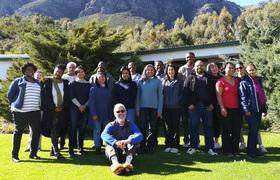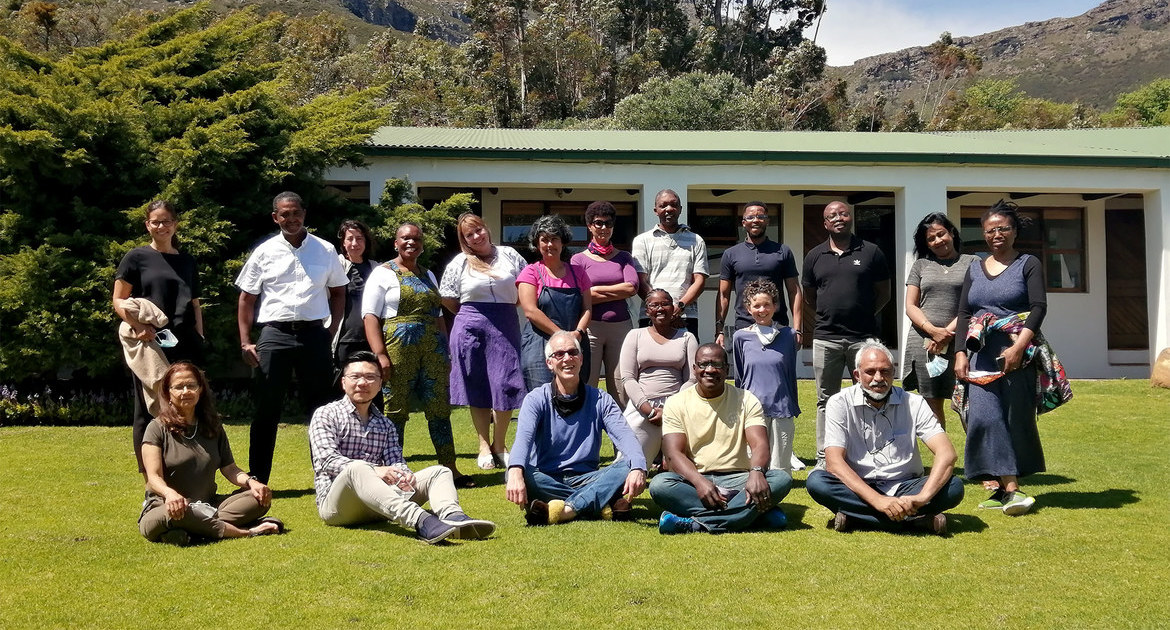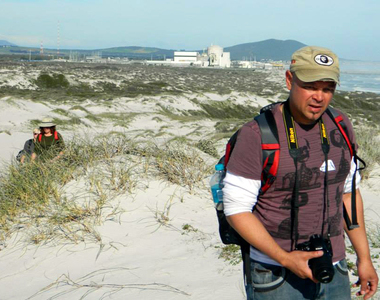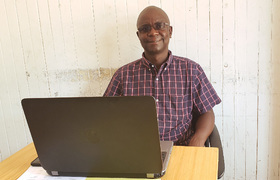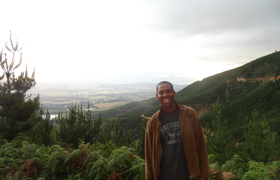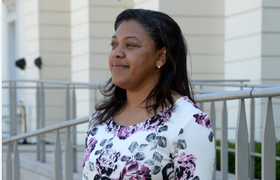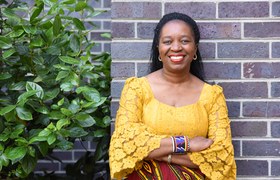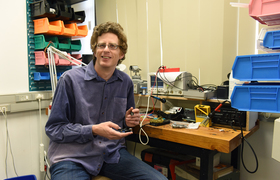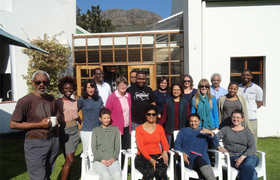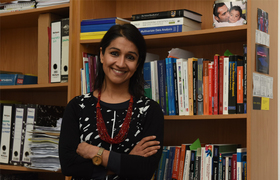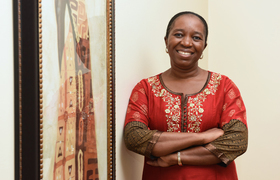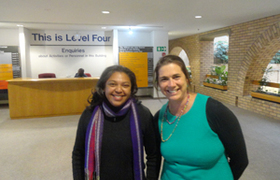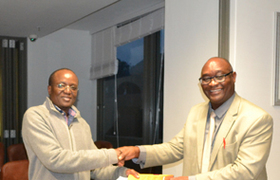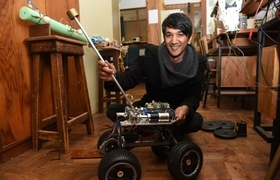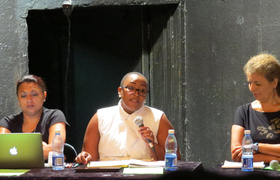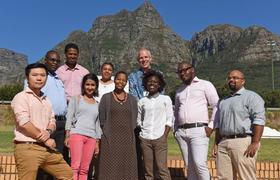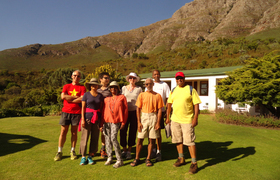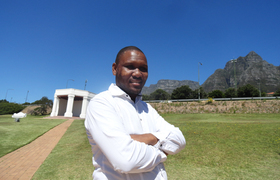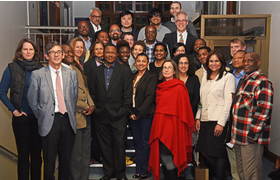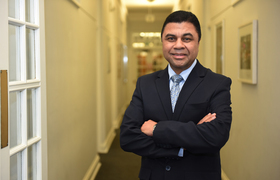‘Political meddling’, ‘cadre deployment’ crippling municipalities
08 March 2019 | Story Fani Ncapayi and Lungisile Ntsebeza. Photo Sandi Pruitt, Flickr. Read time 6 min.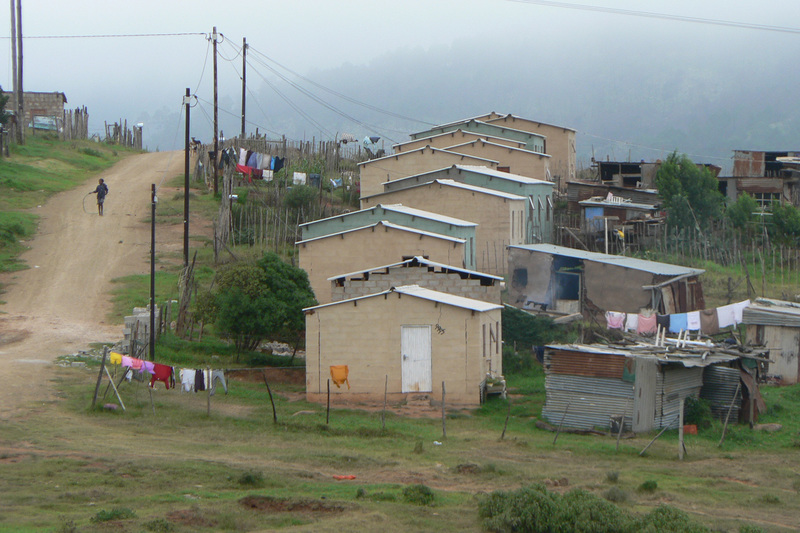
Addressing MPs on May 15 last year, the minister of co-operative governance and traditional affairs, Zweli Mkhize, lamented the state of the municipalities, describing 87 out of 283 of them as dysfunctional. In his words, there are a growing number of “municipalities which are becoming distressed or dysfunctional, including those that are regressing in audit outcomes”.
He identified “mismanagement and political instability or interference, corruption and incompetence” as contributory factors.
Auditor general Thembekile Kimi Makwetu also drew attention to the regression of 45 municipalities, with only 16 showing an improvement. Only “33 municipalities (13%) managed to produce quality financial statements and performance reports and to comply with key legislation, thereby receiving a clean audit”, he said.
Makwetu revealed that auditors were met “with increased contestation of audit findings and pushbacks whereby our audit processes and the motives of our audit teams were questioned”.
Pressure was placed on audit teams to change conclusions to hide negative audit outcomes or the disclosure of irregular expenditure. Some of those being audited “used delaying tactics where information and evidence were not provided as requested”.
Among those that have regressed are the Buffalo City metro and all six district municipalities in the Eastern Cape: Amathole, Sarah Baartman, Chris Hani, Alfred Nzo, Joe Gqabi and OR Tambo. The Intsika Yethu, Sakhisizwe, Walter Sisulu, Ingquza Hill, Port St Johns and Makhanda local municipalities do not have permanent chief financial officers.
The auditor general attributed this to “instability, disregard for laws and regulations, and the absence of solid internal controls”.
For his part, the provincial secretary of the ANC, Lulama Ngcukayitobi, is reported as having “acknowledged that some municipalities in the province faced serious challenges of political and institutional instability”.
The response
Residents have expressed their anger and frustration mainly by protesting. According to Municipal IQ, which monitors and assesses all of South Africa’s 278 municipalities, “the footprint of protest activity is increasingly evident across a diverse range of communities — from cities to rural areas, with the range of issues including growing demands for housing and job opportunities in urban areas to basic services and better governance in smaller municipalities”.
There were about 144 reported service delivery protests by July 2018.
Municipal IQ points out that the highest number of protests have taken place in the Eastern Cape. There have also been court cases in which the judgments went against the municipalities. Two recent examples are the Enoch Mgijima and Makhanda local municipalities. In the case of the former, its assets were auctioned and the residents of the Makhanda municipality are considering withholding the payment of their rates.
The situation is so dire that the minister has invoked section 139 of the Constitution (Act 108) and placed 11 municipalities under administration.
Political interference is at the centre of the poor performances of most of the municipalities. The practice of cadre deployment enables the ruling party to place its members in strategic positions, thus making officials accountable primarily to their political principals rather than to the residents. This is in conflict with the provisions of chapter seven of the Constitution, which, among other things, encourages community participation in matters of local government.
The problems of the Sakhisizwe municipality in the Chris Hani district municipal area has a lot in common with those facing the other municipalities.
In the first instance, the municipality is not among the 11 that Mkhize placed under administration in May last year. This is surprising because it is no better than those identified as dysfunctional, although it is reassuring that the Eastern Cape legislature has highlighted that the municipality, which failed to submit its 2017-2018 annual financial statements, is in crisis.
There have been several demonstrations in the municipality, which have shut down parts of it.
The first total shutdown occurred in Cala, which, with Elliot, make up the municipality. It began as a demonstration led by a section of the ANC Youth League on July 13 last year. The main issue involved the disbursement of tenders by the municipality and the protesters demanded the removal of the mayor and the municipal manager, whom they accused of corruption and irregular employment procedures.
The action crippled municipal operations in the town for more than a week but it also highlighted deep divisions in the league, and some members questioned the authenticity of the leaders of the demonstrations. There were claims that they were not in good standing in the organisation and that they did not represent the views of the league’s local branch. There are claims that the differences led to physical clashes between youths in Elliot and Cala.
About a week after the shutdown, the ANC’s provincial executive committee (PEC) visited Cala and the mayor was suspended for three months pending the outcome of an internal investigation.
But this triggered an angry reaction from the residents of Elliot, who formed a crisis committee. They believed the suspension of the mayor, who lives in Elliot and whom they regard as their leader, undermined and marginalised them, and they demanded his reinstatement.
The crisis committee also believedthat the PEC’s internal investigation should include a 2009 investigation of the municipality. They pointed out that the results of that were never made public and no action was taken against the incumbent mayor in 2009, who was from Cala.
Addressing a meeting of the Cala Ratepayers’ Association at the height of the shutdown in Elliot, the speaker of the Sakhisizwe municipality, Kholiswa Faku, confirmed that it was in financial difficulties and said the equitable share of funding provided by the national government to municipalities, based on the number of registered voters, could not rescue the municipality. She was hopeful that the PEC’s investigation would reveal the causes of the situation.
The problems in the municipality are many. Its infrastructure, such as the roads and sewerage systems, is in a poor state, and sewage often flows in the streets. Poor lighting also leaves large parts of the two towns and surrounding villages in darkness and reportedly contributes to the high levels of crime. At a meeting of Elliot residents with their councillor, it was reported that there are at least 15 crimes reported every day.
The lack of enforcement of by-laws, including traffic control, also aggravates the situation. Streets, particularly in Cala, are almost impossible to navigate at some times of the day.
The dumping of waste is another sign of the municipal collapse and then there is the number of unfinished infrastructure projects, such as the refurbishment of the sewerage systems and the paving of streets.
What to do
Mkhize and the management of the Sakhisizwe municipality seem to believe that the problems are caused by lack of human capacity and insufficient financial resources, but this does not go far enough. Political meddling and the abuse of power by political leaders are the main reasons. Politicians interfere in administrative processes for their personal benefit, which compromises the delivery of services. The political system also cushions them from being accountable to the citizens.
An example concerns the manner in which an Elliot resident was treated. At a meeting of the Elliot Residents’ Association on October 7 last year, she reported that she had asked officials to remove a tree because its roots are damaging her house. She was told the machine was being used in Cala and she would be helped when it came back. But she then saw it was being used to clear the yard of the acting mayor. The municipality never came back to her.
Our key observation is that residents haven’t sufficiently challenged the abuse of power that is evident. People’s organisations such as residents’ and ratepayers’ associations and social movements need to organise themselves to ensure that municipal officials are primarily accountable to them and not to their political leaders and organisations.
Municipalities are an important sphere of governance and the one closest to the people. Thus it is a level at which the people can identify and elect their local government leaders, who will then be primarily accountable to those who elected them, and people can dictate how they want to develop their areas. Residents can also formulate clear principles to guide how to monitor their leaders.
Dr Fani Ncapayi is a research associate at the Centre for African Studies, University of Cape Town, and a senior researcher of the Inyanda National Land Movement. Professor Lungisile Ntsebeza, who is also at the centre, conducts research on the land question and local government.
Next Generation Professoriate (NGP)
The Next Generation Professoriate (NGP) is a mid-career academic staff development and support programme. Funded by the vice-chancellor’s Strategic Funds, the NGP addresses demographic inequalities in the academic hierarchy. The goal is to help members become associate and full professors.
The NGP was officially launched in September 2015. By the end of 2018, four of its members had been promoted to full professor and a further 14 had reached the rank of associate professor.
The programme is led by Dr Robert Morrell, who has over 35 years of academic experience in South African universities. He has a B1-rating from the the National Research Foundation (NRF) and is an elected member of the Academy of Sciences in South Africa.
Newsletters
In the news




















